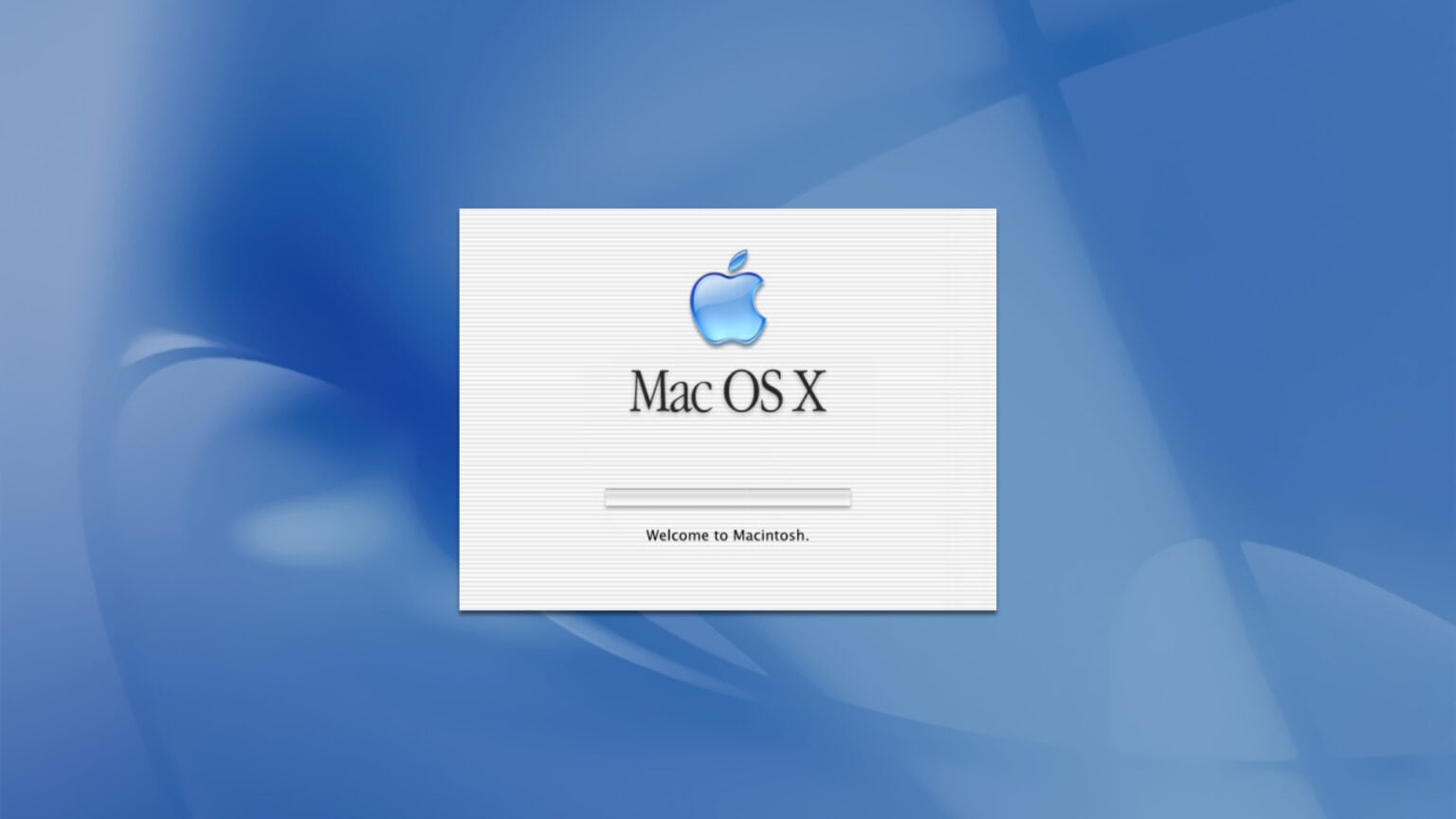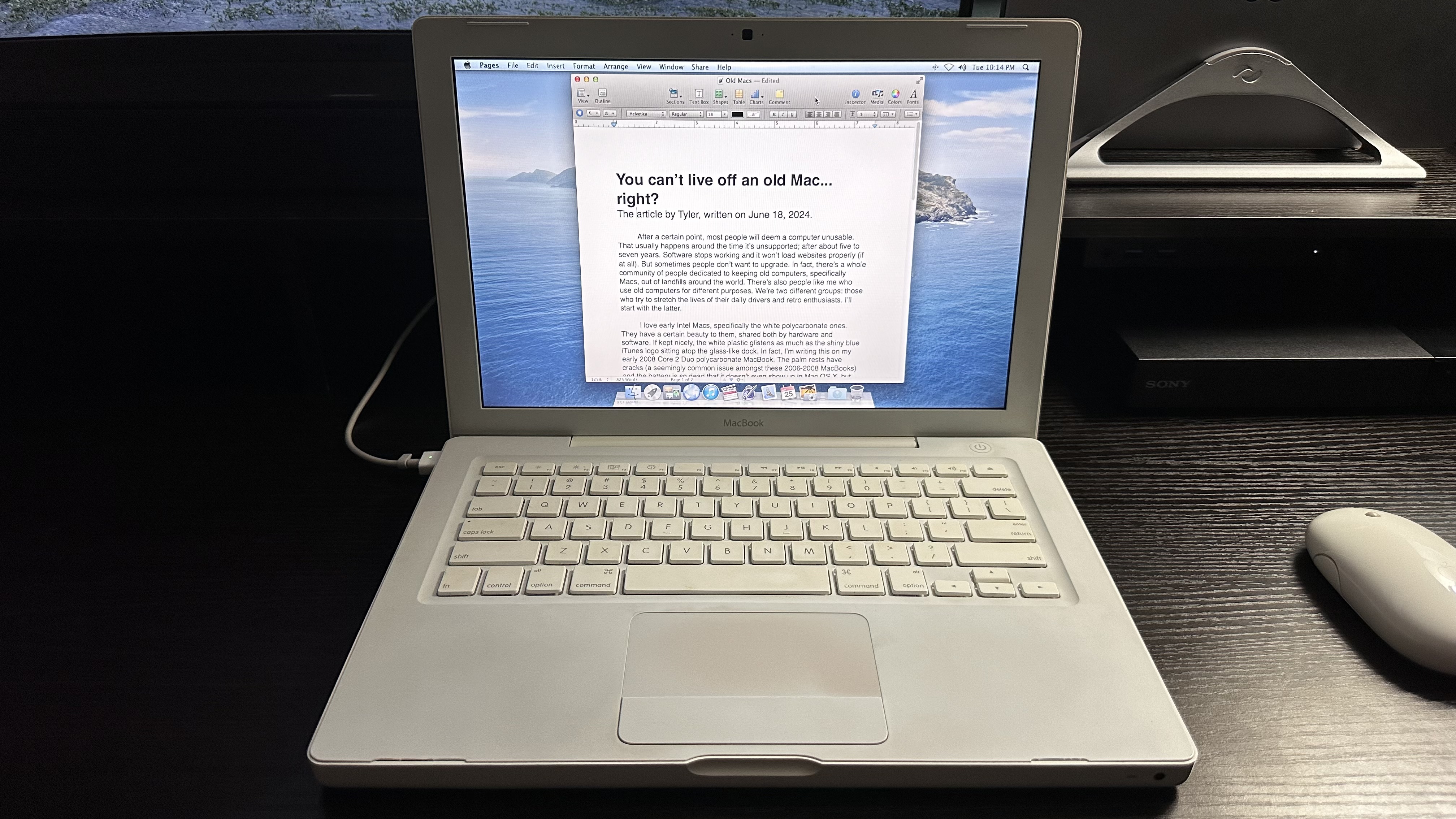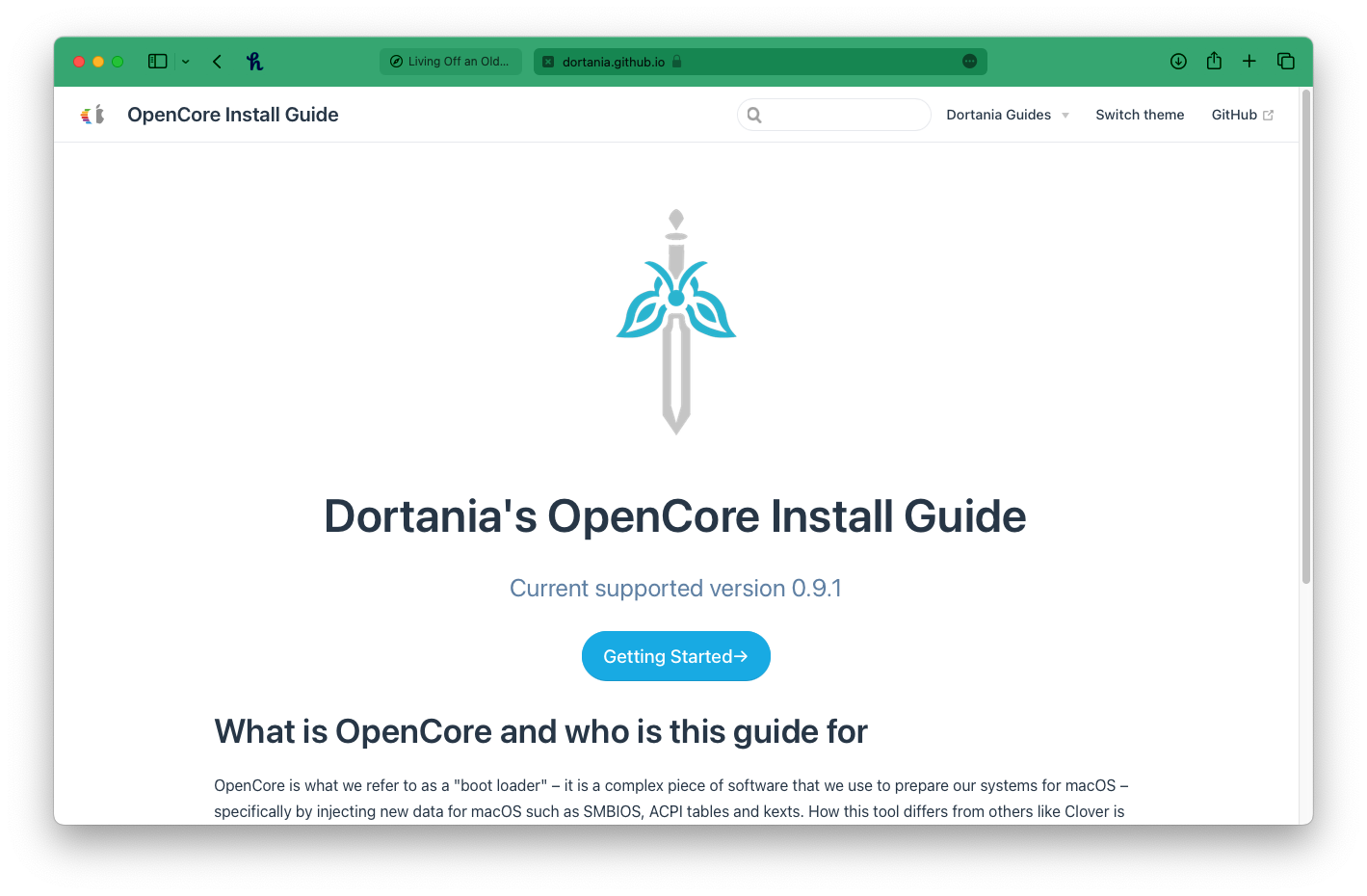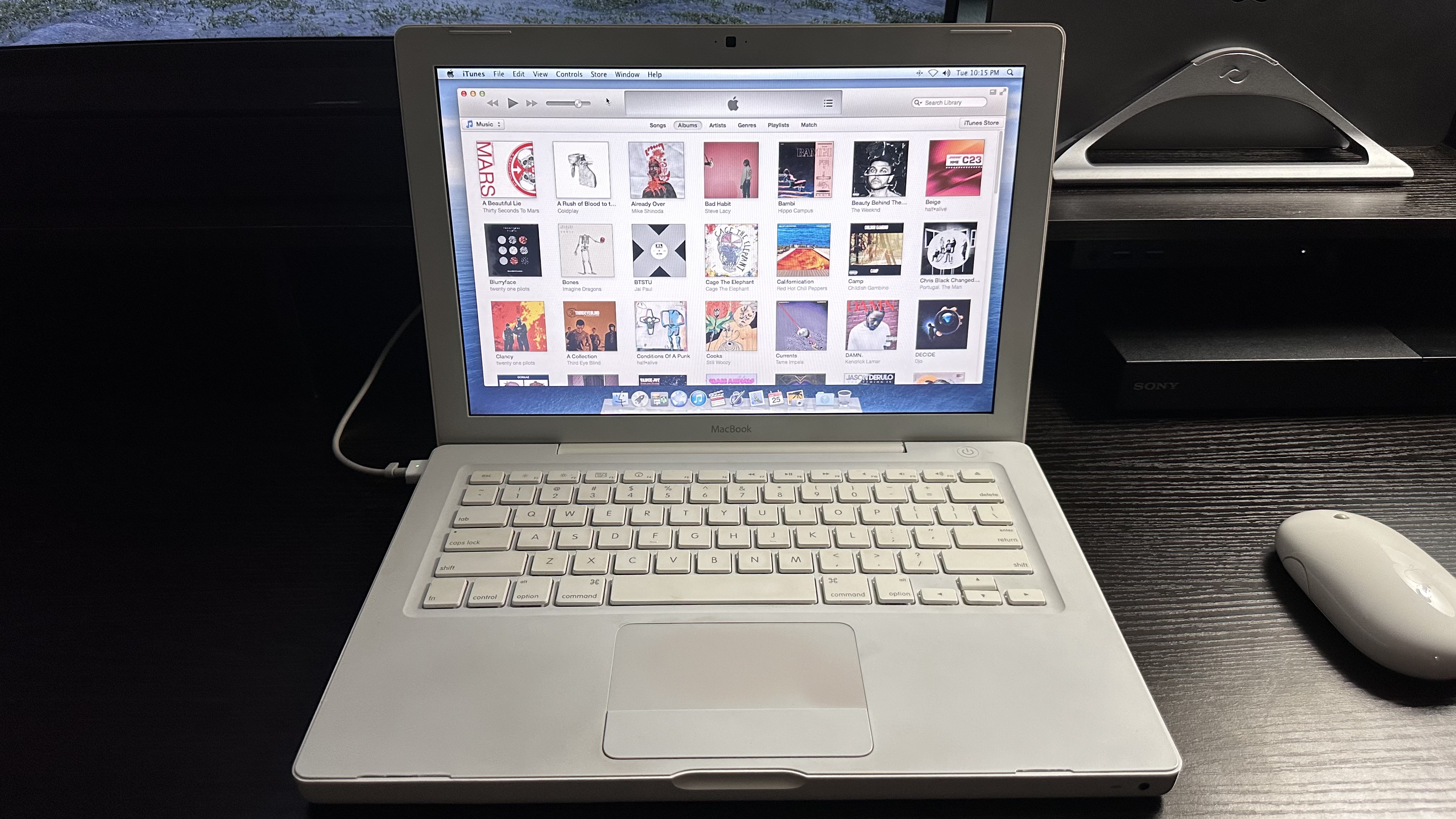You can’t live off an old Mac... right?.

After a certain point, most people will deem a computer unusable. That usually happens around the time it’s unsupported; after about five to seven years. Software stops working and it won’t load websites properly (if at all). But sometimes people don’t want to upgrade. In fact, there’s a whole community of people dedicated to keeping old computers, specifically Macs, out of landfills around the world. There’s also people like me who use old computers for different purposes. We’re two different groups: those who try to stretch the lives of their daily drivers and retro enthusiasts. I’ll start with the latter.
I love early Intel Macs, specifically the white polycarbonate ones. They have a certain beauty to them, shared both by hardware and software. If kept nicely, the white plastic glistens as much as the shiny blue iTunes logo sitting atop the glass-like dock. In fact, I’m writing this on my early 2008 Core 2 Duo polycarbonate MacBook. The palm rests have cracks (a seemingly common issue amongst these 2006-2008 MacBooks) and the battery is so dead that it doesn’t even show up in Mac OS X, but otherwise this machine is in perfect condition. It’s not incredibly slow on Mac OS X Lion, but isn’t incredibly usable for most day-to-day tasks.

Even with patchers or anything, I could never update this Mac to a usable OS. It’s not my main machine and hasn’t been since 2017. I only used it then because it was a hand-me-down and all I had. At this point it won’t even connect to my home WiFi for a reason unknown to me (probably a security-related issue). The reason I’ve kept this around is that I have iPods. They’re not my primary music devices; I pay for Apple Music and use it on all my modern Apple devices and my PS5.
But I keep them around for when I want to ditch my phone, iPad, or laptop. I even have a dock still in my bedroom for when I want to put music on quickly without needing to put in my AirPods or boot up my modern MacBook Pro. And since you can’t sync music from Apple Music to an iPod and I don’t want multiple user accounts on my primary machine, this 2008 MacBook lives on as a dedicated iTunes machine. It has enough storage and is easily storable for when I’m not using it. That’s what I use this Mac for. And now, I’m using Pages on it to write this article just for the heck of it.

Most Macs after early 2008 can do a bit more than that, though. A tool called OpenCore Legacy Patcher allows older Macs back to around 2008 to run modern versions of macOS, with anything from Catalina to Sonoma (and soon Sequoia) being available for download. The patcher works with relative ease and can give an older Mac some more life. I see people online getting Sonoma working on MacBooks as old as 2010 pretty frequently with a couple 2008 and 2009 models there too.
Once a new version of macOS is installed, those computers work pretty well and can be used for basic web browsing and email. It really makes me wonder why even bother with new Macs when old ones can perform pretty competently considering their age. If you need to do anything more than simple internet based tasks you’re probably out of luck, as those machines are heavily limited by their power and RAM. Something like a 2015 MacBook Pro should work well enough on Monterey (it’s latest supported OS), so really nothing newer needs to be patched up.

Of course once you delve back into early Intel days it gets harder to use anything, as they just don’t have as much support. There’s not much you could do on Mac OS X Snow Leopard and earlier, as the lack of iCloud support as well as application support makes it basically unusable. Mac OS X Lion still supports some iCloud functions. I got Mail and iCal working by just inputting my email and password which was pretty cool. It’ll even sync iCal events to my old iPod touch. iTunes works of course and so do iWork and iLife applications from that time period.
To answer my opening question: depending on who you are you might be able to live off an old Mac. It depends on who you are and what you need to do. I certainly can’t live off of my early 2008 MacBook, but I can use it. A lot of people could live off of early Retina MacBook Pros and some MacBook Airs from that time, though. It just depends on what you would use the computer for. Regardless, it’s incredible how much could be done on what Apple considers legacy hardware.
Photos sourced from Tyler and Unsplash.

